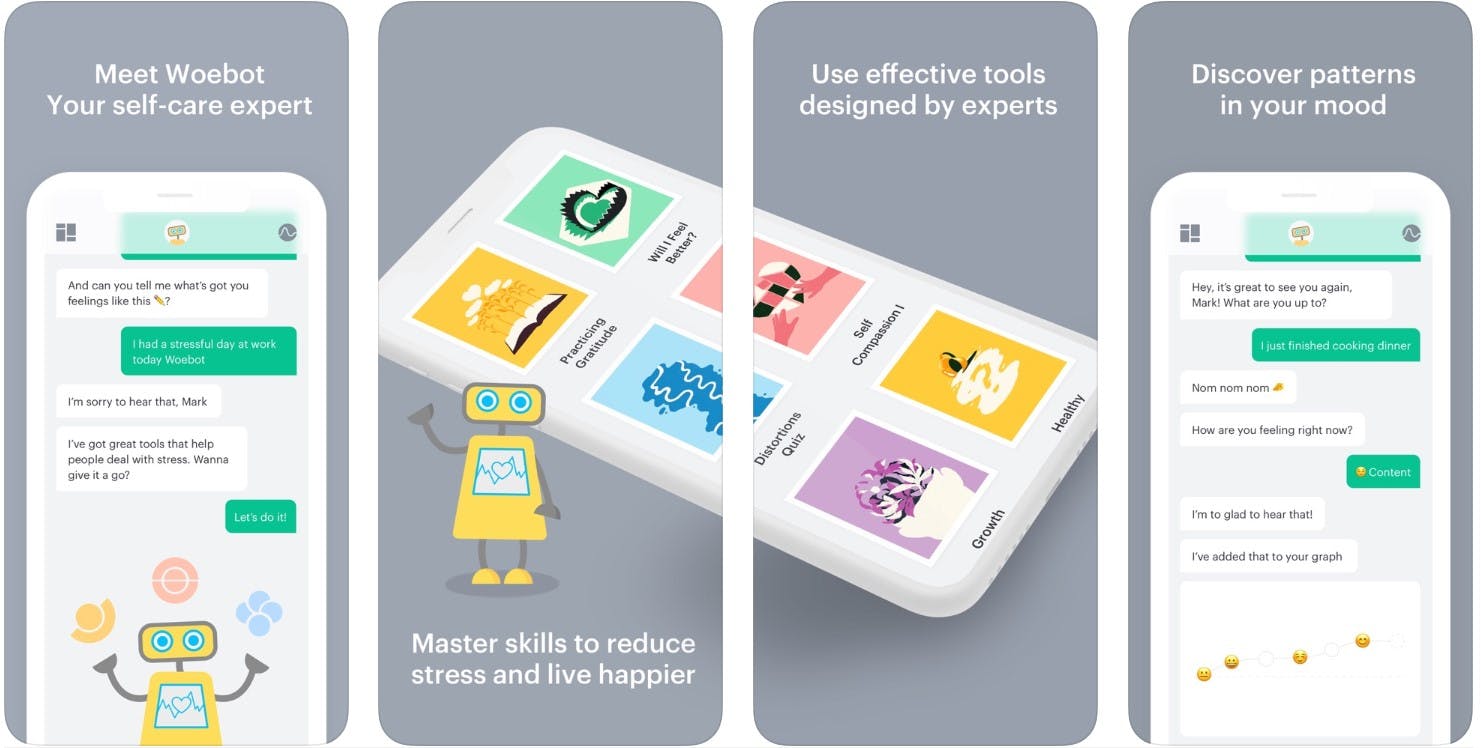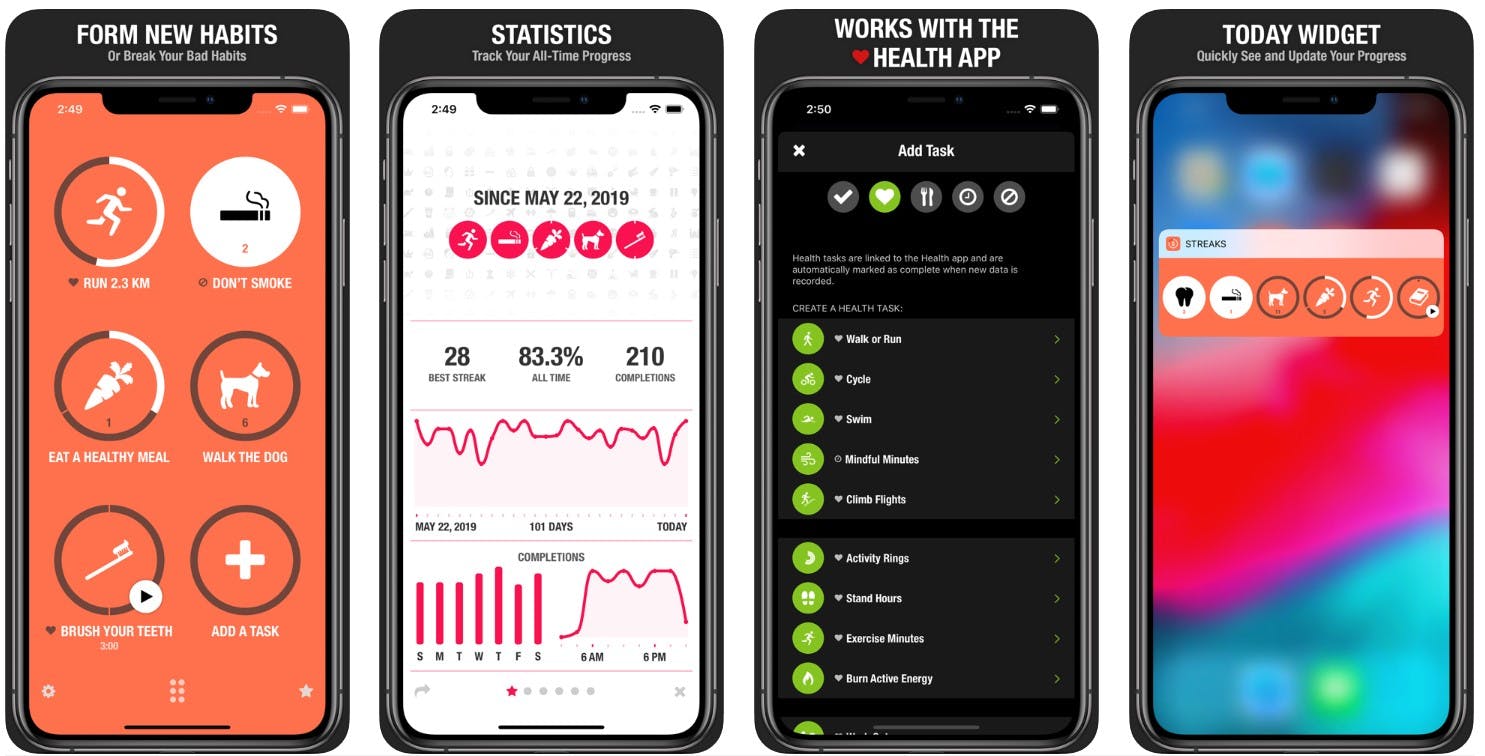We used to drink a cup of coffee, take a shower and brush our teeth in the morning. Then we would walk the same way to work, order our favorite lunch and meet our best friend. Our brain just loves habits! While some patterns of thinking or acting are beneficial for us, some of them can be harmful in the long term. Redesigning behavior can be painless with the support of mobile apps created by psychologists and neuroscientists.
Brain shortcuts
We all try to change ourselves when we start realizing that some behaviors are unfavorable for us. It might be sleep shortage, unhealthy diet, alcohol consumption, lack of physical activity, spending too much money. Less often though, we try to transform our way of thinking, which has an even more significant impact on our life. Thought hygiene means the way we manage daily situations, judge things and people, perceive the world and – most of all – treat ourselves. The living environment, people around us, and our childhood determine the thoughts and feelings we represent. Repeated thousands of times, actions and reflections become habits, conscious or subconscious ones.
The reason why our brain forms a habit has a scientific explanation. It’s about energy and rewards. The human brain, which is only 2 percent of the body weight, consumes 20 percent of the energy we need. This complicated system also has to automize some processes to save power for other tasks. So instead of every morning, analyzing in the smallest detail what we should do first, we do things automatically.
What’s more, every time we repeat a habit, our brain gets a reward. These shortcuts are the best friends of our minds but not always for us. Here we should separate bad habits, which can be changed, from addictions – a complex disease that influences the functioning of the brain and body.
The good news is that bad habits can be reframed and we are capable of forming new ones. All you need is a systematic step-by-step approach.
Small changes and big results
Everybody wants a change, but nobody wants to change – everybody experiences how true this is. Whenever you want to start a new, better life, or make a new year’s resolution, you feel this empowerment at the beginning: “I can do it,” “I will succeed.” And many times you fail, returning to old habits. Why is this so? It’s not because you are lazy but because the brain is fighting for energy. That’s why after a few weeks we skip new plans – we lose the battle with ourselves. Knowing the rules of this game, scientists and psychologists elaborated on many ways to overcome the brain’s defense strategy. Some say that it takes 21 days to form a habit. Experts suggest breaking down every big goal into small tasks. Following a detailed plan also supports our motivation. Another solution is so-called cognitive behavioral therapy (CBT) that aims in changing patterns or thinking behavior. Fortunately, you don’t have to study all these theories and methods. There are many mobile apps that are based on behavior change science, created by experts in the field and psychologists. All you have to do is to download one of them and follow the steps. So whenever you want to go on a new diet, do more sport, think more positively or boost motivation, check one of the apps recommended below.
Five apps to start redesigning your life
Woebot
Positive change in life begins with positive thinking. The way you treat and see yourself drives your behavior. It’s impossible to redesign your daily actions if you feel unwell, stressed, lonely, unmotivated, sad. Woebot is a self-care expert – a coach that will guide you through every day using techniques based on approaches such as cognitive behavioral therapy (CBT), mindfulness, and dialectical behavior therapy (DBT). Although it’s a chatbot, Woebot gives practical tips, chats with you and sometimes cheers you up if needed. I’m convinced with how the AI-based system responds precisely during a chat. It feels like a talk with a friend.
- A sympathetic chatbot with a human touch
- Practical tips that will support you in achieving your goals
- Daily check in to discover and change patterns in mood
- Backed by research and crafted by psychologists
- A friendly chat, coaching session and professional help

Streaks
Replacing a bad habit by a good one needs discipline and time. If you know already your goals, make a plan and monitor the progress. This app will help you to define up to twelve custom tasks you want to complete each day. You decide what you want to do regularly. Every time you complete an assignment, you get closer to success. Specify your objectives, follow the plan and monitor your achievements. You won’t even notice when after a few weeks, you will have smoothly adopted a new behavior.
- Easy to navigate the app with an awarded design
- Flexibility – you can define any goal you wish
- Useful statistics to motivate you to stay on track
- Pay once (only $4.99) and use the app for as long as you want
- A systematic approach to change for everyone

Habitica
Every change needs the fuel called motivation. Without the right incentives, you will lose your initial desire and quickly return to old behaviors. With Habitica, accomplishing your goals is like a game with a lot of fun. First, you define your habits and real-life daily objectives. Then you translate goals into actions by preparing a personal to-do list. Now you can create a custom avatar of you – a hero fighting with difficulties. You can also join teams and work with other users on group goals.
- A game with a purpose to form good habits
- Team up with friends to boost motivation
- Missed activities are punished, completed ones – rewarded
- A cute pixelated game character
- A fun alternative for more serious apps in this category

Done
The most uncomplicated among habit-tracking apps. The process of quitting bad habits and activities or building new, positive ones is about doing, not thinking. So make things done with the DONE app. Set a goal and track it regularly, as often as you feel you need to. Before you start, break down each big goal into small activities. For example, if you want to eat healthier, break it into small tasks: eating muesli in the morning with fruits, drinking 2 liters of liquids every day, having five portions of vegetables/fruits a day etc. You will have to rewrite some activities as you gain experience and find out what fits you best.
- User-friendly habit tracker for each age group
- Customizable habit display – you see progress on your personal goals
- The free version allows you to monitor up to three habits/goals
- Change a task into a routine that will grow into daily life
- Adjust the number and frequency of reminders for your needs

Strides
The best choice for those who love in-depth analyses of habits and want to understand the personal advancements in details. Besides standard options like setting goals and marking their completion, Strides goes one step further. On the graphs, you can see clearly your progress and projected results. The app works best for long-term habits, like tracking physical activity or saving money.
- Daily checklists and easy to navigate dashboard with your habits
- Projections show when you will achieve your goal
- Very detailed charts, pace lines and success rates
- For users who are serious about the habit change process
- One of the most comprehensive apps but also pricey ($4,99/month)


